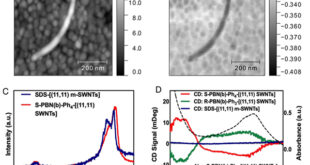Significance
Pursuant to sustainable development goals, with particular focus on energy, global attention has shifted towards the development of clean and renewable energy. To this end, various fuel cells have been proposed. Amongst these, the direct methanol fuel cells (DMFCs) have emerged as promising electrochemical energy conversion devices for a variety of applications due to their simple system and high-energy conversion efficiency, which results in great environmental benefits. Unfortunately, the crossover of methanol from the anode to the cathode and the intrinsic slow oxygen reduction reaction (ORR) kinetic remain the main practical drawbacks limiting the performance and the adequate commercialization of DMFC systems. On technical terms, the mixed potential reduces the overall cell efficiency, whilst at the same time increasing the required oxygen stoichiometric ratio as well as generating additional water. Existing studies majorly recognize two pathways compete during the ORR in acid media solutions: i.e. the direct or complete reduction of O2 to H2O (4 electrons pathway); and the indirect or incomplete reduction of O2 to H2O2 (2 electrons pathway). The former is desirable as the indirect pathway reduces significantly the whole DMFC performance.
Pt-based catalyst has been highly developed as cathode electrode in proton exchange membrane fuel cell (PEMFC), although the low methanol tolerance, scarcity and elevated price limits the introduction of DMFC in the energy market. As a resolve, researchers have recently reported the synthesis and physicochemical analysis of novel Pd-based materials. The developed materials portrayed good methanol tolerance, high catalytic activity toward the ORR, as well as appropriate catalytic performance when employed as cathode in DMFC. Nonetheless, further research is required. On this account, Spanish researchers from the University of La Laguna: Dr. Luis M. Rivera-Gavidia, M.Sc. Maximina Luis-Sunga, Dr. Jose L. Rodríguez, Dr. Elena Pastor and Dr. Gonzalo García developed a novel methodology that could not only determine mechanistic and kinetics parameters of the ORR at these Pd-based catalysts, but also establish a connection between diverse strategies to study the main factors affecting the performance of DMFCs. Their work is currently published in the International Journal of Hydrogen Energy.
In their approach, the oxygen reduction on Pd-based catalysts in 0.5 M H2SO4 in the absence and the presence of CH3OH was investigated. Next, kinetic and mechanistic parameters were obtained and analyzed by diverse procedures. In general, electron transfer number, kinetic currents, Tafel plot, mass transport currents and methanol tolerance data are acquired, compared and analyzed by different methodologies.
Remarkably, the first derivative method employed was reported for the first time and appears as practical way to determine the methanol tolerance. The authors further reported that PdFeIr/C revealed the highest catalytic performance regardless of methanol concentration, in comparison to PdIr/C, PdFe/C and Pd/C electrocatalysts.
In summary, methanol tolerance and the oxygen reduction reaction (ORR) at four different Pd-based catalysts were analyzed by diverse methodologies in the current manuscript. Special attention was paid to the operating reaction mechanism and the kinetic parameters. Additionally, the study proposed the first derivative method as practical and direct way to determine methanol tolerance. In a statement to Advances in Engineering, Professor Gonzalo García mentioned that binary and ternary Pd-based materials containing Fe can be considered for further research in the design of efficient and cost-effective catalysts for the ORR, making them more suitable to be used in DMFCs.
Reference
Luis M. Rivera-Gavidia, Maximina Luis-Sunga, José L. Rodríguez, Elena Pastor, Gonzalo García. Methanol tolerant Pd-Based carbon supported catalysts as cathode materials for direct methanol fuel cells. International Journal of Hydrogen Energy; Volume 45, Issue 40, 14 August 2020, Pages 20673-20678.
 Advances in Engineering Advances in Engineering features breaking research judged by Advances in Engineering advisory team to be of key importance in the Engineering field. Papers are selected from over 10,000 published each week from most peer reviewed journals.
Advances in Engineering Advances in Engineering features breaking research judged by Advances in Engineering advisory team to be of key importance in the Engineering field. Papers are selected from over 10,000 published each week from most peer reviewed journals.


